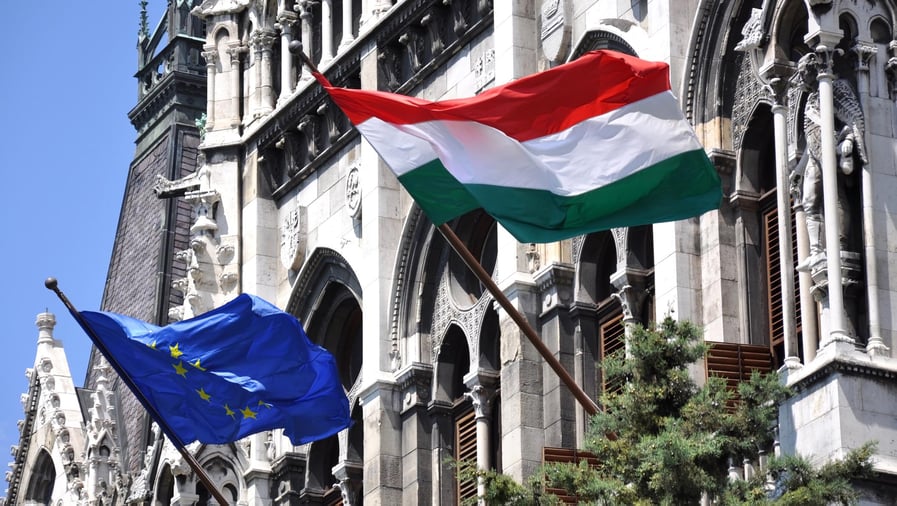On 1 February, European leaders are reconvening for a special summit in Brussels to discuss a EUR 50 billion aid package to Ukraine. The aid package forms part of a revised EU long-term budget top-up that requires unanimous agreement from all 27 member states to be approved.
At the last attempt to pass the budget in December 2023, Hungary’s Prime Minister Viktor Orbán blocked the move ostensibly because he does not want to see EU money being directed outside of the Union. In reality, Orbán’s resistance is tied in part to the European Commission’s withholding of some EUR 30 billion of funds to Hungary over alleged breaches of the EU’s values, following Budapest’s apparent stifling of free speech and minority rights alongside political interference in the country’s judiciary. Hungary has also maintained a cosy relationship with Russia throughout the latter’s war in Ukraine, pushing back on EU sanctions on Russia and renewing deals on Russian energy imports in early 2023.
Patience wearing thin
It is clear EU leaders’ patience with Hungary’s strongarm tactics is wearing thin. In agreeing to opening membership negotiations with Ukraine at the December summit, for example, EU leaders had to adopt an unconventional workaround to Orbán’s intransigence by urging him out of the room to allow for a unanimous decision of the remaining 26 member states. And, senior diplomatic personnel have already indicated that the regional bloc may now be at a point where more drastic action on Hungary could be on the cards. At the extreme, this could mean invoking Article 7 to suspend Hungary’s voting rights. However, this is not without its risks, and it is unclear whether alienating Hungary would serve the long-term interests of the Union. Indeed, sacrificing Hungary may well trigger wider fractures and risk disintegrating the EU. Besides, although Hungary is increasingly isolated in the EU, getting the other 26 member states to agree to this ‘nuclear option’ is not clear cut.
Orbán lost a key ally in the EU when Poland voted out fellow EU-sceptic and right-wing populist Law and Justice (PiS) party in October 2023 and Italy under Prime Minister Giorgia Meloni has moved towards a more centrist approach to Russia and Ukrainian aid than some might have expected. Meanwhile, one potential ally for Hungary may have included Slovakia’s Russia-friendly Prime Minister Robert Fico, but he has subsequently indicated support for both the future accession of Ukraine to the EU and of the aid package to Kiev. Still, employing such a drastic measure will not sit easy with EU members concerned that if this tool is employed against Hungary, it would set precedent for future use against them over rule of law or minority rights issues at home. Others, such as France, are opting to instead seek softer approaches, with President Emmanuel Macron inviting Orbán for a private dinner in December in an effort to find common ground.
So, where to from here?
More effective measures to rein Hungary in remain available beyond Article 7 and an explicit position from other EU leaders to indefinitely cut off funding to Hungary would potentially be of greater threat to Orbán. Press reports on the eve of the 1 February summit revealed the details of a confidential document drawn up by EU officials, outlining measures to target the Hungarian economy by freezing EU funding to Hungary should Orbán not fall in line. Frustration with the current situation is increasingly palpable among EU members, and the resort to what is effectively financial blackmail from the rest of the EU means Orbán’s star may be fading as a result.
Hungary has already lashed out at the document, while at the same time suggesting it would be amenable to approving the budget on the condition it has the right to review the package annually. But, given the EU is seeking ways to limit Hungary’s power over the budget, this idea will not sit well with other members.
All this suggests that negotiations will be drawn out, but in the end, Hungary is likely to capitulate. The country’s currency fell as much as 0.8 percent against the Euro following the reports of the EU memo on freezing Hungary’s funds, and the appetite to punish Hungary in the event of no agreement is growing. But as distasteful as some member states may find it, giving Orbán an escape route to save face is likely to be preferable to sacrificing the integrity of the Union.
With continued US support for Ukraine similarly bogged down by domestic political wrangling, the EU’s ability to offer both financial and military aid remain critical – perhaps more so, given the explicit threat Russia poses to European security beyond Ukraine’s borders. A fragile EU, susceptible to the whims of individual member states, fundamentally undermines this ability. Beyond the current dispute with Hungary, the EU’s upcoming parliamentary elections will also chart the direction of travel for the bloc: will we see further fragmentation within its membership, or can Europe’s diplomats and politicians find the resolve to establish the necessary common ground to solidify the Union’s raison d'être?



